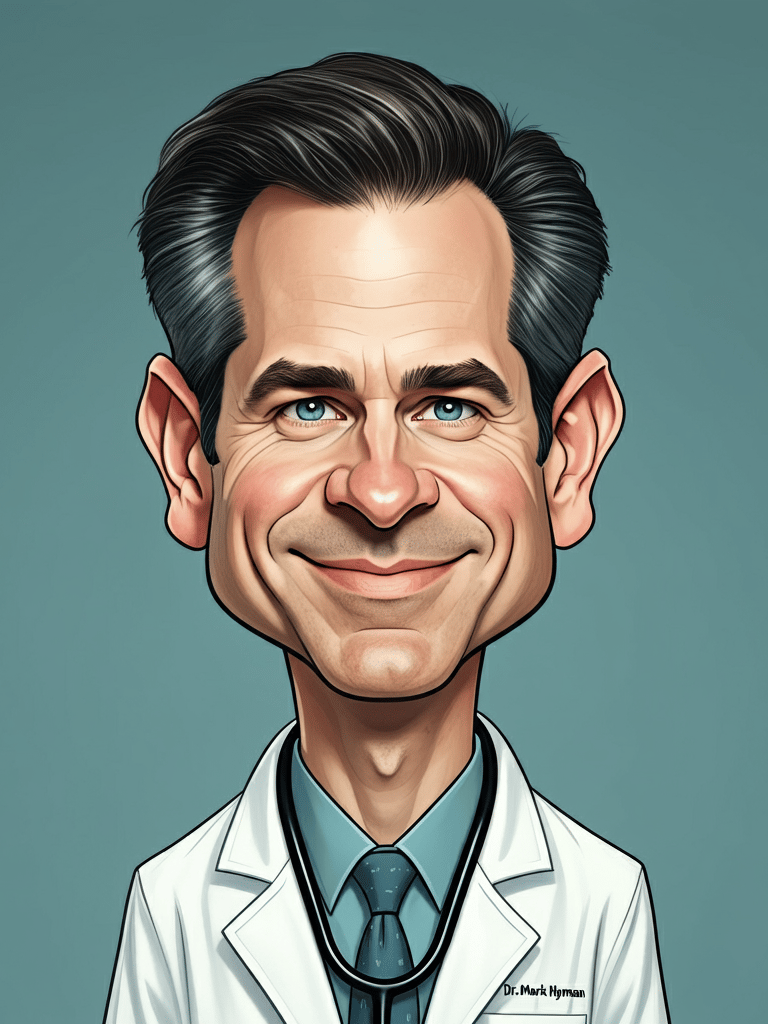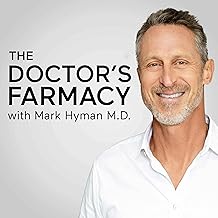Through years of research, I have uncovered a credible foundation for the principles behind functional medicine—a model that, somewhat like European (single payer model)t emphasizes addressing the root causes of chronic illness rather than just managing symptoms. With a big dash of preventive medicine thrown in.
I do not receive any compensation or endorsements for recommending functional medicine doctors; my focus is solely on sharing an approach that aligns with the evidence I’ve explored.
If you decide to choose a functional medicine doctor, it’s essential to select one who is credentialed in both allopathic (traditional) medicine and functional medicine. This dual credentialing not only ensures that they have comprehensive training but also increases the likelihood that their services will be covered by insurance. While functional medicine often requires higher upfront costs for thorough evaluations and advanced diagnostics, its focus on resolving underlying health issues often leads to long-term cost savings. By aiming to cure rather than merely manage chronic diseases, functional medicine offers an innovative, effective, and financially sensible path to sustained wellness.
What is Functional Medicine?
Functional medicine is a transformative approach to healthcare that focuses on identifying and addressing the root causes of disease rather than merely managing symptoms. Unlike the traditional allopathic model, which often treats health issues in isolation, functional medicine views the body as an interconnected system. It emphasizes the unique biological, environmental, and lifestyle factors contributing to an individual's health.
This approach is gaining widespread recognition in the medical community, thanks in part to institutions like the Cleveland Clinic and thought leaders like Dr. Mark Hyman. These pioneers demonstrate how functional medicine can bridge the gap between conventional treatments and a deeper understanding of wellness.
--- Functional Medicine at the Cleveland Clinic
The Cleveland Clinic is at the forefront of functional medicine, with its Center for Functional Medicine serving as a model for how this approach can be integrated into mainstream healthcare. The center offers a patient-centered experience, where doctors collaborate with patients to uncover and treat the root causes of chronic illness.
Dr. Patrick Hanaway, one of the founding members of the Cleveland Clinic’s functional medicine team, describes their approach as "systems biology." This means looking at how different parts of the body interact and influence health, rather than focusing solely on isolated symptoms.
Patients at the Cleveland Clinic undergo comprehensive evaluations that include advanced diagnostic tests, in-depth lifestyle assessments, and personalized treatment plans. For example, someone presenting with chronic fatigue might be evaluated for gut health, hormonal imbalances, nutrient deficiencies, and environmental toxins. The results of these assessments guide interventions that often include dietary changes, stress management strategies, and targeted supplementation.
The success of the Cleveland Clinic's functional medicine program has inspired other healthcare systems to adopt similar models, illustrating how this integrative approach can complement traditional medical practices.
---Dr. Mark Hyman: A Functional Medicine Trailblazer
Dr. Mark Hyman is a key figure in the functional medicine movement, having served as the director of the Cleveland Clinic's Center for Functional Medicine and authored numerous best-selling books on health and wellness. His contributions have brought functional medicine into the spotlight, making it accessible to millions seeking alternatives to conventional healthcare.
Dr. Hyman's philosophy can be summed up in his mantra: “The power of food as medicine.” He advocates for the use of nutrient-rich diets, emphasizing that the foods we consume directly influence our body's ability to heal and maintain balance. In his book The UltraMind Solution, for example, Dr. Hyman explains how poor nutrition and exposure to toxins can disrupt brain function, contributing to mental health issues like depression and anxiety.
One of Dr. Hyman's hallmark concepts is the "root cause" model of care. He describes how addressing underlying factors—such as inflammation, hormonal imbalances, and oxidative stress—can lead to lasting health improvements. Dr. Hyman’s extensive educational resources, from his podcasts to his Functional Medicine Practitioner Training program, continue to inspire both patients and healthcare providers to embrace this comprehensive approach to healing.
--- How Functional Medicine Differs from Traditional Healthcare
Functional medicine challenges the traditional "disease-focused" model by looking beyond surface-level symptoms. Instead of asking, “What drug will treat this disease?” functional medicine practitioners ask, “Why did this disease develop in the first place?”
For example:
- Traditional Model: A patient with chronic migraines may be prescribed painkillers to manage their symptoms.
- Functional Medicine Approach: The same patient would undergo a thorough assessment to uncover potential triggers such as food sensitivities, hormonal imbalances, stress, or environmental toxins. The treatment plan might include dietary adjustments, stress reduction techniques, and natural supplements to address these root causes.
This holistic approach not only aims to alleviate symptoms but also promotes long-term wellness. As the Cleveland Clinic and Dr. Hyman demonstrate, functional medicine can complement conventional practices, leading to more effective and sustainable health outcomes.
--- Core Principles of Functional Medicine
Functional medicine is built on several core principles that guide practitioners:
1. Personalized Care: Every individual is unique, and functional medicine tailors treatment plans to the patient's specific needs.
2. Systems-Based Approach: The body is treated as an interconnected system, recognizing that imbalances in one area can affect others.
3. Root Cause Analysis: Practitioners delve deeply into the underlying factors contributing to illness, whether they stem from genetics, lifestyle, or environment.
4. Patient Empowerment: Functional medicine emphasizes the patient's active role in their healing journey, fostering collaboration and education.
5. Lifestyle as Medicine: Nutrition, exercise, sleep, and stress management are considered foundational to restoring health.
---How the Cleveland Clinic and Dr. Hyman Exemplify Functional Medicine
The Cleveland Clinic and Dr. Hyman share a commitment to redefining healthcare through the lens of functional medicine. Their approaches highlight several key strengths of this model:
- Collaboration and Expertise: The Cleveland Clinic’s team of specialists works together to provide a multidisciplinary perspective on each patient’s case. Similarly, Dr. Hyman emphasizes the value of collaboration among healthcare providers to create comprehensive care plans.
- Evidence-Based Practices: Both the Cleveland Clinic and Dr. Hyman’s programs are rooted in science, utilizing cutting-edge diagnostic tools and therapies to guide treatment.
- Patient-Centered Focus: Patients are at the heart of both models, with an emphasis on understanding their unique stories and tailoring care to their needs.
---Who Can Benefit from Functional Medicine?
Functional medicine is particularly effective for individuals with chronic or complex health conditions that have not responded well to traditional treatments. Common issues addressed include:
- Autoimmune Disorders: Conditions like rheumatoid arthritis or Hashimoto’s thyroiditis can improve when the root causes, such as gut health or chronic inflammation, are addressed.
- Metabolic Dysfunction: Functional medicine offers tailored solutions for managing insulin resistance, diabetes, and other metabolic conditions.
- Digestive Disorders: Functional medicine’s focus on gut health makes it especially effective for addressing IBS, Crohn’s disease, and other gastrointestinal issues.
- Chronic Fatigue and Stress: By identifying and treating underlying factors such as adrenal dysfunction or nutrient deficiencies, functional medicine can restore energy and vitality.
--- How to Find a Functional Medicine Doctor
When choosing a functional medicine doctor, consider the following:
1. Credentials: Ensure the practitioner is a board-certified MD or DO with additional certification in functional medicine, such as through the Institute for Functional Medicine (IFM).
2. Experience: Look for a doctor with expertise in your specific health concerns.
3. Collaborative Approach: Choose someone who values patient input and actively involves you in the decision-making process.
4. Affiliation with Reputable Institutions: Doctors associated with organizations like the Cleveland Clinic or influenced by Dr. Hyman’s methodologies are often a good choice.
--- The Future of Functional Medicine
As institutions like the Cleveland Clinic expand their functional medicine offerings and leaders like Dr. Mark Hyman continue to educate the public, functional medicine is poised to play an increasingly prominent role in healthcare. This approach not only addresses chronic disease but also promotes prevention and empowers individuals to take control of their health.
By choosing a functional medicine doctor, you’re not just seeking a healthcare provider—you’re embarking on a journey to understand and optimize your body’s unique potential for healing and resilience.
Sources:
Cleveland Clinic. "Functional Medicine: An Integrative Approach to Treating Chronic Disease." Cleveland Clinic. Accessed November 18, 2024. https://my.clevelandclinic.org/departments/functional-medicine.
Hyman, Mark. The UltraMind Solution: Fix Your Broken Brain by Healing Your Body First. New York: Scribner, 2008.
Hyman, Mark. "What Is Functional Medicine?" Dr. Mark Hyman. Accessed November 18, 2024. https://drhyman.com/blog/2023/what-is-functional-medicine.
Institute for Functional Medicine. "What Is Functional Medicine?" IFM. Accessed November 18, 2024. https://www.ifm.org/functional-medicine.


Who's Your Doctor Now?
I know. This is a caricature of Dr. Hyman.


This IS Dr. Mark Hyman
As a researcher of the European Medical business model (single payor, with it's emphasis on preventive modalities) and Mediterranean Lifestyles, I am particularly impressed with Dr. Hyman's concept of Food as a Prescriptive model of treating chronic conditions. You can get much , much more detail from his podcast: "The Doctor's Farmacy" You can get a copy of this podcast by clicking on the image, below.
Silver Sage Insights
Understanding fat's protective role for your health.
1-425-533-1952
© 2024. All rights reserved.
Pages contain affiliate links. If you click through and make a purchase, the "Project" may earn a small commission at no extra cost to you. Your support helps fund the ongoing research efforts of this project.
Thank you!
To Learn More? Click here

